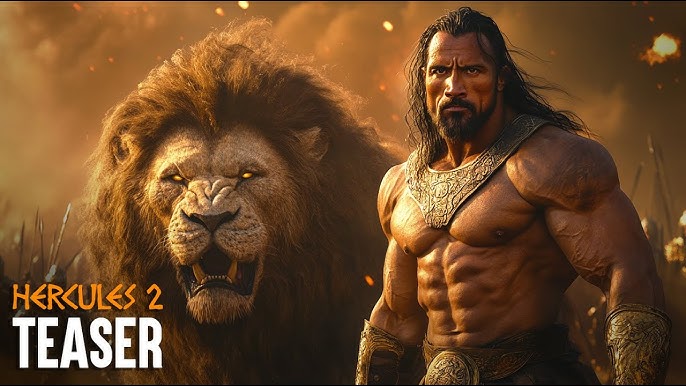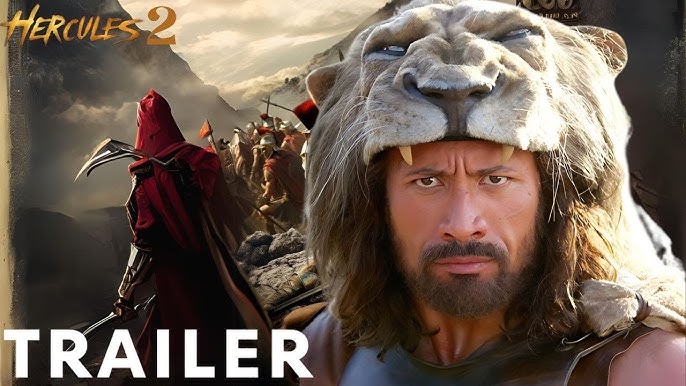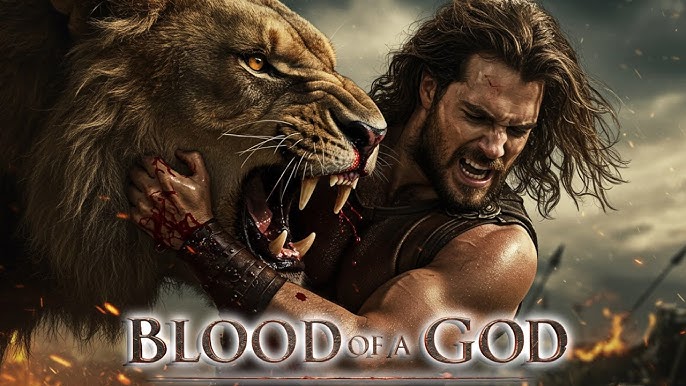Hercules 2 (2026) – Wrath of the Gods

Some legends end in triumph. Others only awaken new trials. Hercules 2 (2026) revives the mythic saga of the demigod warrior, bringing back the muscle, the spectacle, and the timeless clash between man and the divine. Where the first film chronicled Hercules as mercenary, soldier, and reluctant hero, this sequel dares to take him back to the roots of myth—where gods, monsters, and destiny converge.
The story begins years after Hercules’ triumphs on the battlefield. Once feared and worshipped, he now lives in uneasy peace, haunted by memories of the Twelve Labors and the blood of countless enemies. But peace does not last. Whispers spread of a forgotten prophecy: that Hercules, son of Zeus, is destined not only to save mankind but to challenge Olympus itself. When a new threat rises—a monstrous force unleashed by the vengeful gods—Hercules must once again take up the lion’s skin and club.
At its heart, Hercules 2 is about legacy and rebellion. The demigod who once fought to prove his worth now battles to decide his place between humanity and Olympus. Is he pawn of the gods, weapon of fate, or king of his own destiny? This question drives him deeper than any enemy’s blade ever could.
The action is titanic. Colossal battles rage against armies of mythological beasts: serpents that coil around cities, giants that shake the earth, and creatures born of divine wrath. Hercules fights not only with strength but with strategy, turning every battle into a test of will. The set pieces are operatic—blood-soaked temples, fiery battlefields, and storm-wracked seas where Hercules faces monsters that dwarf even his legend.
A new villain looms: a fallen Olympian, cast into shadow, who seeks revenge against Zeus through his son. Their conflict becomes personal, divine blood clashing with divine vengeance, and Hercules caught in the middle of gods who see mortals as pawns.
Supporting characters anchor the epic in humanity: loyal comrades who remind Hercules of friendship’s power, a mortal queen who challenges his heart and ideals, and a young warrior who idolizes him—forcing Hercules to see the burden of being legend through fresh eyes.
Visually, Hercules 2 is breathtaking. Golden palaces of Olympus shimmer in cruel beauty, while the mortal world burns beneath storms of fire and lightning. Every frame feels carved from marble and blood, a painting of gods and men locked in eternal struggle.

The score thunders with drums, choirs, and strings that echo ancient epics. It is both heroic and mournful, carrying the weight of a legend whose victories are written in sacrifice.
Thematically, the film asks: what does it mean to be a hero when the gods themselves are unjust? Can Hercules truly be free if fate already has written his story? In his struggle, the film explores humanity’s eternal defiance of destiny itself.
By its finale, Hercules 2 promises both spectacle and heartbreak. The gods tremble, cities fall, and Hercules stands bloodied but unbowed, his roar echoing across eternity. Whether he wins or loses, his defiance alone ensures his immortality—not in Olympus, but in the hearts of men.
Ultimately, Hercules 2 (2026) is a larger, darker, and more mythic continuation of the saga. Fierce, operatic, and deeply human beneath its god-slaying spectacle, it crowns Hercules not just as legend of strength, but as a symbol of rebellion against fate itself.
Related movies :
Related movies :
Related movies :
Related movies :
Related movies :
Related movies :
Related movies :











